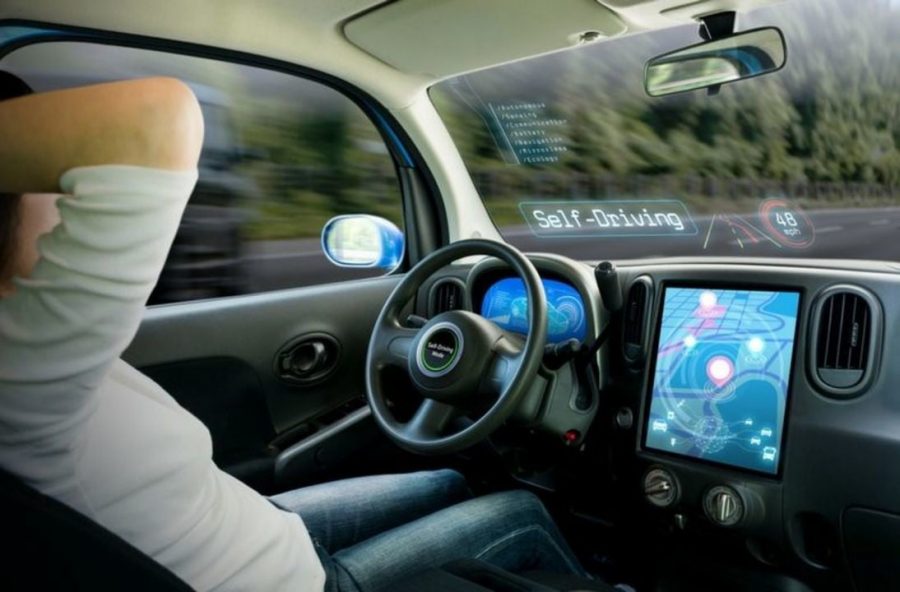On Self Driving Cars
September 27, 2019
For all driving folk, at one point or another, we all wished that our cars took us to places we wanted to go automatically. It’s understandable, humans are lazy by nature, and the route that involves the least work on our part is usually the route that we take. Unless of course, we are crazy over-achievers, in which case, what are we trying to prove anyway? Well, good news, science and computers have yet again stepped up to make our lives easier. But, at what costs?
Big name car companies, such as Tesla, Volvo, and BMW have already begun testing, (and even producing) cars that require no driver, and are completely controlled by computers installed inside of them.Which is a big deal! The last innovation to shake the automotive climate like this were electric cars, something that is still seen as foreign and luxurious to the everyday person.
According to AutoInsuranceCenter.com, a website which, you guessed it, gives advice about auto insurance, claims that “81 percent of car crashes are a result of human error, computers would take a lot of danger out of the equation entirely.” It sounds like a promising proposal, one that lots of people are quick to jump on when defending the production of driverless cars. Truthfully, many cars are already on their way to becoming self-driving. Many cars already have measures that make use of sensors to alert the drivers if, for instance, there is an obstacle in their path, as pointed out again, by AutoInsuranceCenter.com.
However, as most of us can probably infer, driverless cars aren’t without their risks. Computers aren’t always flawless, and without any human input, are susceptible to mistakes we could catch. As well as any issues the computer may have with recognition, driverless cars are an open way for hackers to reek real havoc on the streets. Like all computers, a computer that controls a car, can still be hacked by nefarious people, putting the lives of the people inside, and outside of the car in danger, should the hacker decide to crash the vehicle, or break other laws. It’s also unclear as to how the legalities of a self-driving car crash would work. Where to shift the blame is muddled, as people are left wondering whose fault it really is. The person inside? The company who produced the car? Maybe the computer programmer?
This could also lead to a conflict of interest in consumers, as adding such hardware to a car, to allow it to be self-driving, could increase the price of a model by $100,000. If it’s ever to be successfully implemented, we would likely only see it be used by the elite, in luxury cars, while those living in the middle and lower-class will still be driving their cars, like normal folk.


